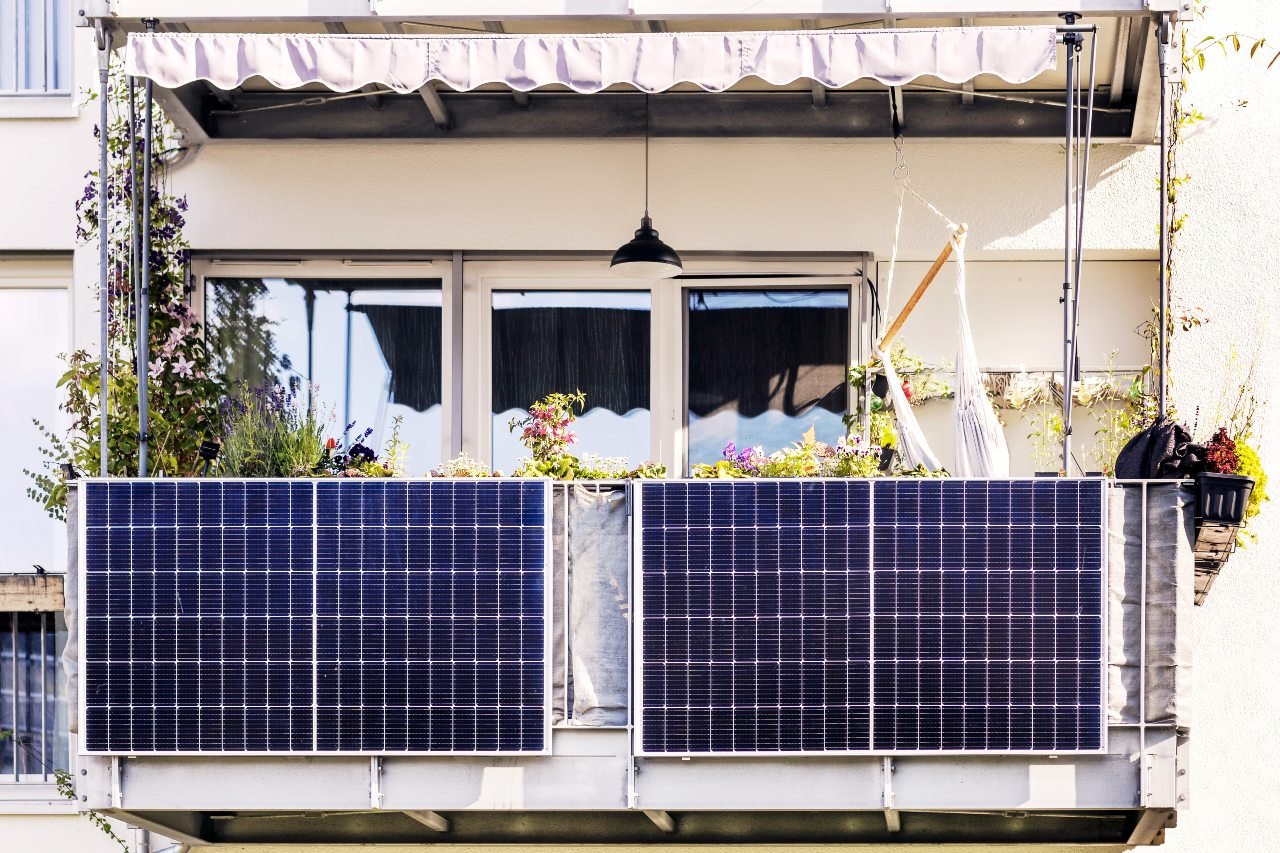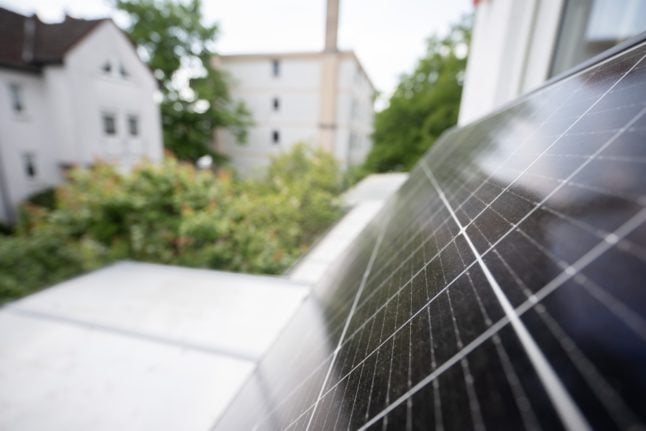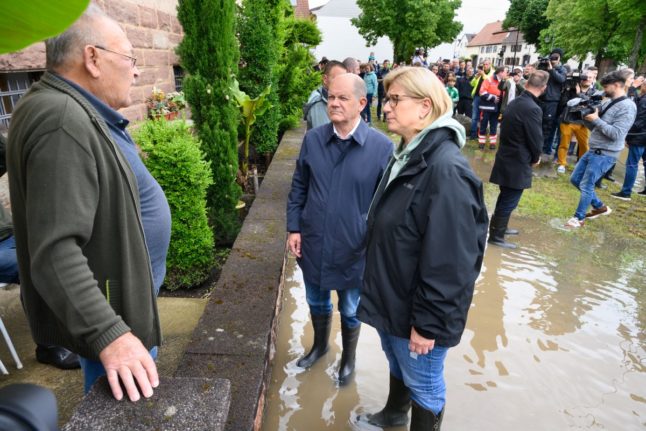With rising prices affecting almost every area of life, many people are looking for ways to cut costs wherever they can.
When it comes to electricity, this could include looking at renewable options like installing solar panels on your balcony.
According to data from the Federal Network Agency’s Market Data Register, this is an increasingly popular choice. As of April 2nd this year, there were around 400,000 balcony solar units in operation in Germany, compared to just 230,000 in the summer of last year.
These little photovoltaic systems can be a great way to become more self-sufficient by producing your own energy for the home – but despite the benefits, you may have been put off by fears of mountains of paperwork and an uncertainty around the rules.
READ ALSO: How to install a solar panel on your balcony in Germany (even if you rent)
The government’s new Solar Energy Package, passed on Friday, aims to solve this issue by making it simpler for people in apartments or single-family homes to install solar panels and use their own energy.
It’s part of a major drive to roll out renewable energy in Germany, pushing up photovoltaic capacity from 7.5 gigawatts in 2022 to 22 gigawatts in 2026 and ultimately 215 gigawatts by 2030.
But what exactly is changing for homeowners and renters? Here’s what we know so far.
Streamlined registration process
Rather than having to register with your local network operator when installing solar panels on your balcony, in future simply registering with the Federal Network Agency’s Market Data Register will suffice. This streamlined process has been in place since April 1st, 2024.
Increased capacity allowance
Solar devices installed in the home are allowed to be more powerful in future. If your future device has an installed output of up to 2 kilowatts and an inverter output of up to 800 volt-amperes in total, you can register it quickly in a simple and unbureaucratic registration process.
Previously, devices were only allowed an inverter output of up to 600 volt-amperes.
No barriers on meters
In a transitional measure designed to encourage more people to switch to solar energy, balcony installations can be run through any type of meter on the market.

This includes meters without a backstop, which run backwards when more energy is produced than is used. These, alongside normal one-way meters with a backdrop, will be permitted for a limited time until modern digital meters can be installed.
Under previous rules, both older types of meter were prohibited.
Simpler energy storage
In future, balcony solar systems will be able to store energy with a conventional shockproof plug. This will make installation way easier than it was before.
READ ALSO: German government to subsidise up to €30,000 of heating revamp costs
Easier operation of multi-unit buildings
To enable tenants in apartment blocks to use cheaper solar power from roofs, garages or battery storage systems directly, the new instrument of “communal building supply” is being introduced. This eliminates the complicated requirement to feed energy into the general electricity grid and permits residents to use the energy generated themselves.
In future, tenants will also be able to take out an affordable supplementary tariff themselves for electricity that is not covered by their solar installation. Some rules on this still need to be clarified though, so watch this space.
Tenant subsidies in commercial buildings
In future, tenant electricity will also be subsidised for commercial buildings and ancillary facilities such as garages if the electricity generated there is consumed immediately, i.e. without being fed through the grid.
This allows several energy systems to be combined and should avoid the overwhelming technical barriers that were previously a problem in residential neighbourhoods.



 Please whitelist us to continue reading.
Please whitelist us to continue reading.
Member comments